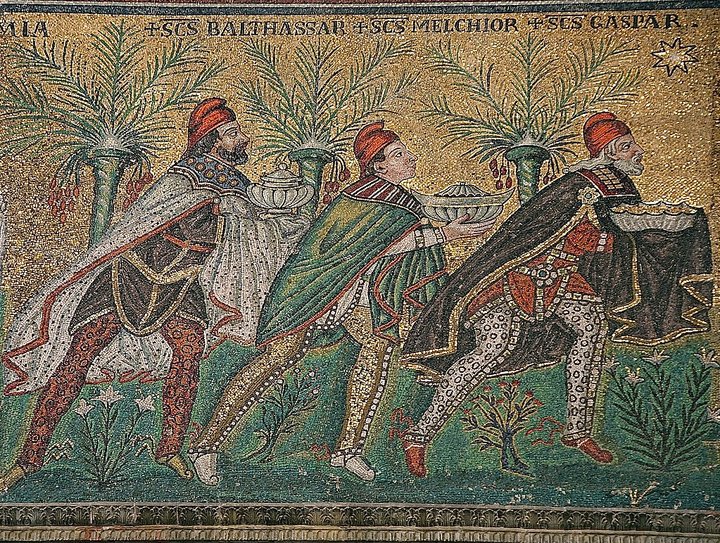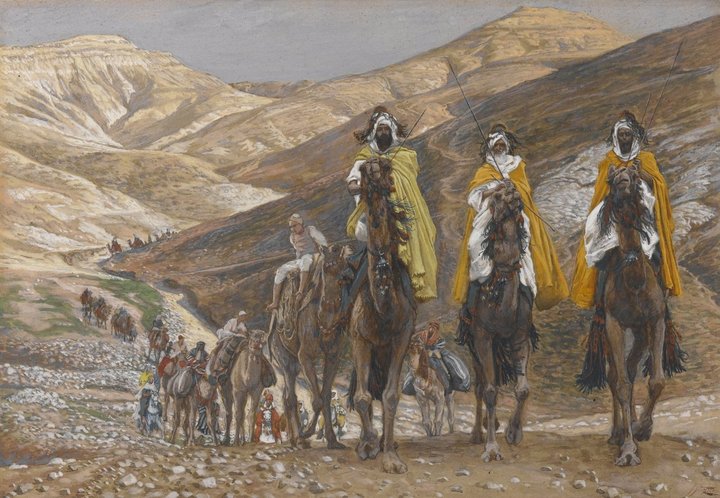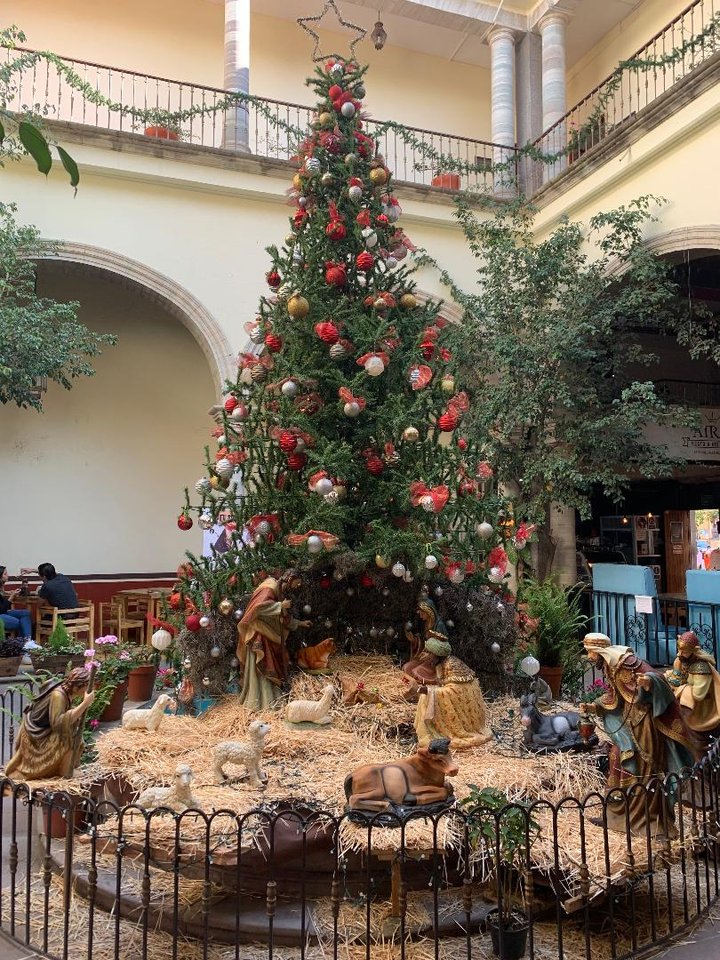“We three kings
of Orient are
Bearing
gifts we traverse afar…”
— Christmas carol written in 1857 by John Henry Hopkins, Jr., rector of Christ Episcopal Church, Williamsburg, Penn.
###
They arrived in Bethlehem on January 6, Epiphany, having faithfully followed the “star of wonder, star of night,” to pay tribute to the 12-day old Jesus (hence the 12 Days of Christmas). Not that the Bible gives us much information about their visit — less, even, than the carol. The tale is only reported in the Gospel of Matthew (part of the 20 percent of Matthew not found in the other three canonical gospels): “…behold, there came wise men [Greek magi] from the east to Jerusalem…” When they arrived in Bethlehem, the star “stood over where the young child was,” at which point they were able to present their gifts: gold, frankincense and myrrh.
Which leaves a bunch of questions on the table.
How did “magi” get switched to “kings”?
Matthew, written in Greek by an anonymous author in about 85 AD, uses the word magoi (μάγοι), derived via Old Persian from Avestan magâunô, the priestly caste into which the mystic Zoroaster was born. Astrology features heavily in Zoroastrianism; according to Wikipedia, “Their religious practices and use of astrology caused derivatives of the term Magi to be applied to the occult in general and led to the English term magic.” The popular association of magi with kings may derive from a prophecy in the Old Testament Book of Isaiah (60: 1-6) in which kings “shall come to the brightness of thy rising” bringing “gold and incense.”
Why gold, frankincense and myrrh?
Many theories, but the one that makes most sense to me is the precedent set nearly 300 years earlier by the Syrian King Seleucus I Nicator. He is on record as presenting these three items as offerings at a shrine to the Greek god Apollo. We know this from a letter sent by the king to Miletus, where the shrine was located, listing, in TMI detail, all his offerings.
Gold doesn’t need any explanation — one tradition is that Mary and Joseph used it to finance their journey to Egypt to escape Herod. Frankincense is associated with a deity, and myrrh (as an embalming oil) with death, foreshadowing the Biblical events 33 years later. These latter two explanations were explicitly mentioned by the church father Origen of Alexandra, writing in the third century.
Why three?
No number is mentioned in the gospel, but three gifts, so it makes sense that there were three gift-givers.

Byzantine mosaic in Ravenna, Italy, dated to around 565. Photo: Nina Aldin Thune, via Wikimedia. Creative Commons license.
Where does “from the east” refer to?
The tradition is that three magi — whether astrologers, wise men or kings — came from Persia. For instance, see the old mosaic showing Persian clothing with Phrygian caps. (Their names came later: Melchior, Persian scholar; Caspar, Parthian king, who perhaps gave his name to the Afghan city of Kandahar and is sometimes depicted as black; and Balthazar, Babylonian scholar.)

En route from “the east.” James Tissot, 1890, via Wikimedia. Public domain.
Isn’t the timing all wrong for a January 6 arrival?
Matthew is silent on when they arrived, but it surely would take more than 12 days to come on camelback from “the east” to Bethlehem via Jerusalem. There are too many theories about the date to summarize here — Dr. Google will enlighten you if you have the time and inclination.
I’ll just mention that, whereas Santa Claus arrives with his sack of presents on the night of December 24-25 in many western traditions (“…when all through the house/Not a creature was stirring, not even a mouse”), the Three Kings drop off the gifts on Twelfth Night (January 5-6) in many Catholic countries, including Mexico, Argentina, Paraguay and Uruguay. (Unless you’re awake, in which case you’re SOL.) The kids wake up on El Dia de los Tres Reyes to boatloads of prezzies if they’re lucky.
Presents or not, January 6, Epiphany (when Jesus’ divinity was revealed to Gentiles) is a major feast day in most Christian traditions. Even in my vaguely-agnostic Welsh-English household, we took down the Christmas decorations on January 6. No sooner, no later.

Photo: Barry Evans.
###
If you’re reading this on Sunday, happy “Second Day of Christmas.” May you enjoy those two turtle doves from your true love; I know I will.
CLICK TO MANAGE